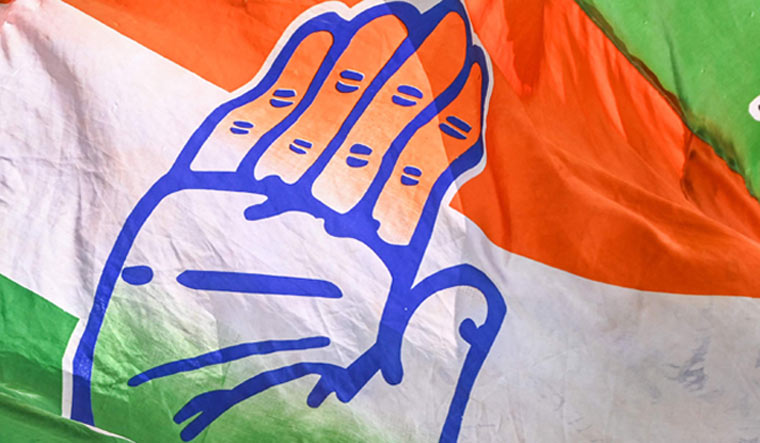Gujarat Election Series 2022 Part IV By Japan K Pathak ; Opposition mostly could win in only Muslim areas in Municipal polls
November 18, 2022
By Japan K Pathak
In this series so far, the focus has been on the subject that why BJP is looking like a winning party ahead of the State Assembly election in Gujarat this year. This is an important point to discuss because many voters tend to elect the MLAs who belong to the party which is likely to form the government.
The last three episodes of this series went into the details of the results of the State assembly by-polls, Lok Sabha general election, and local elections. There’s no attempt to conclude through these articles that the results of the State Assembly election would be the same or similar. The State assembly polls are different than local polls and Lok Sabha polls – the season is different, turnout is different, issues are different, candidates are different, and likewise. These results explained in the past episodes, in fact, indicate several facts such as – BJP has recovered itself from years 2015 and 2017 situations in which several sections or pockets were upset with the party. For example, the party has re-established its superiority in rural areas or the year 2015 Patidar quota agitation could impact only 27 seats of the Surat Municipal Corporation (SMC) and at none other places.
Especially in reference to the year 2021 local polls, it is necessary to point out that it appeared, the Congress party’s existence almost stayed limited to Muslim voters and areas. I remember the day when the local poll results were announced. I was going to a studio of a local Gujarati news channel to present my analysis and I saw that out of 81 municipalities that had witnessed polling, Congress could achieve a majority in only 2. These two municipalities were Maliya Miyana and Sikka, both in the Saurashtra region. While Congress had won all seats in Maliya Miyana municipality, it had won a 2/3rd majority in the Sikka municipality election. When I went into the details of Congres’s win in these only two municipalities, I found that 23 of 24 winnings Congress candidates in the Maliya Miyana municipality poll were Muslims and all 24 were from Muslims populated areas. In the Sikka municipality poll, Congress – NCP had won 17 seats, and all of them barring 3 were Muslims.
Later when I went through the detailed results of the Municipality elections, I found that 103 of 176 Congress candidates who had won were Muslims. This is roughly 60 percent. Then there are reserved seats for SC/ST (Hindus) in Muslims populated areas and naturally therefore Hindu SC/ST candidates would win there. Such Hindu candidates winning from Muslims populated areas were also large in number.
If we go through the results of the Municipal Corporations, 12 out of 24 opposition councilors in Amdavad Municipal Corporation were Muslims. Among 11 Congress councilors in Jamnagar Municipal Corporation (JMC) were Muslims. Congress won the Bhanvad Municipality election also in latter part of the year 2021. The party could get a majority number due to the victory of Muslim candidates such as Zubeda Hingora, Sama Sultana, Zarin Kureshi, Sabina, and Gulmohammad Jethwa. If you go through the list of winning candidates of Congress in Bharuch, Dahegam, Keshod, Bhuj, Surendranagar, Salaya, Jambusar, Ankleshwar, Dahegam, Mundra, Porbandar, Godhra, Himmatnagar, Vadali, Bardoli, Dhrangadhra, Botad, Patan, Veraval, Dholka and Khambhat, you would find the majority of Muslim names.
It’s not that the acceptance of the Congress party in Gujarat has been majorly over among Hindu voters, but among the victorious candidates, the number of Muslim candidates and those who are elected from Muslims populated areas is very high. And what is more interesting to see is that in the local elections, not just Congress but AAP and Owaisi-led AIMIM had also a higher number of Muslims as winning candidates.
For example, out of 11 victorious AAP candidates we found in Municipality elections, 8 were Muslims, such as Ezaz Bapu – Khambhat, Anisabanu, Rukhsar Mirza and Aslambeg Mirza – Petlad, Yasminabanu – Borsad, Musa Abbas, Latif Adam and Isa Abdul – Salaya. Of course 27 councillors of AAP who were elected in the Surat Municipal Corporation (SMC) election were non-Muslims.
Another eye-catching matter is that lot of Muslims have won as BJP candidates also in Municipality elections. So while Congress looked largely limited to Muslim voters and areas, the BJP, AAP and AIMIM also had their share in Muslim votes. I have not gone through the list of the winning candidates in Taluka and District Panchayat elections, or I could analyze Panchayat-level trends against this backdrop.
The benefits of completing the Sardar Sarovar dam flowing, unveiling of Sardar Patel’s tallest statue of the world, removal of section 370, and construction of Ram Janmabhumi Mandir ….. did these development impact the Gujarat voters post 2017? Whether the solid consolidation of Gujarati voters in favor of the BJP would continue? Such questions are worth to think about.
Recent Stories
- ACB Gujarat book two cops in bribery case
- Kesar Keri Mahotsav 2025 to begin at Vastrapur Haat in Ahmedabad from May 14
- Hirin coolie at Ahmedabad railway station? Beware of fake ones stealing luggage
- Pet Rottweiler mauls 4-month-old baby to death in Ahmedabad; CCTV footage goes viral
- MGVCL announces scheduled power cuts in parts of Vadodara from May 14 to May 22
- GujRERA fines ex-MLA Indranil Rajyaguru for major violations in housing project
- No more queues: Gujarat govt plans online learner’s licence test from home
